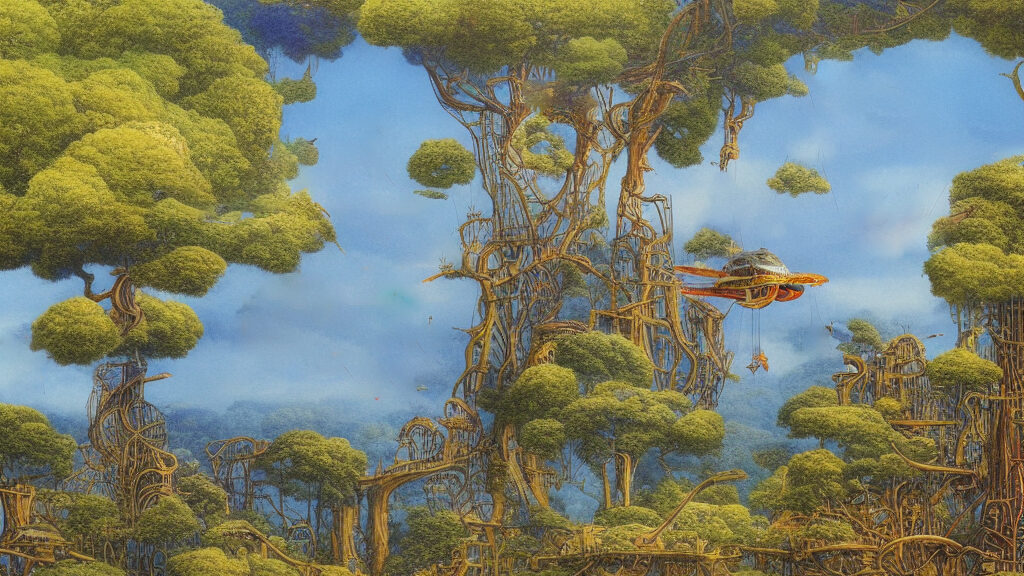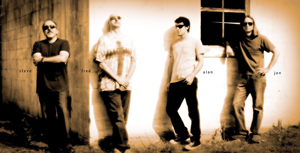
Although many musicians have appeared on Glass Hammer albums over the years, Babb and Schendel have remained the core of the band. Both play a variety of instruments, but Babb mainly concentrates on bass guitar and keyboards while Schendel plays keyboards, various guitars and drums. Their latest album is Cor Cordium. Co-founders Steve Babb and Fred Schendel discuss their music with Progressive Rock Central.
Cor Cordium seems to have a connection with your previous album If. Is this a second part?
Fred: Well, it’s stylistically related, for sure but it’s not consciously a continuation of an exact same sound.
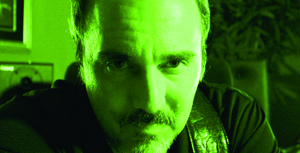
How has Glass Hammer’s music evolved throughout the years?
Fred: It’s funny because we’re always interested in making music that doesn’t sound exactly like the music we’ve already made, and even though some might think that’s what the genre is all about we get in real trouble sometimes because of it. We’ve been trying to mix trying new things, i.e. going a little harder with Culture Of Ascent or psychedelic with Three Cheers, with refining what we do as a classic sounding symph band. We try and identify our strengths and work with them. I think we’ve learned enough about what this current version of the band does well with these two releases that the next will really be something amazing.
How does the composition process work?
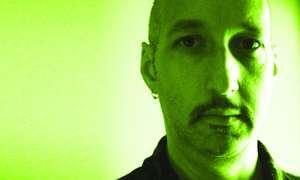
Where do you get your inspiration from?
Fred: Oh, I think it filters in from everywhere. Of course, all the music you grow up listening to, but I think anything that you hear might have ideas in it that lead you somewhere. I honestly don’t know sometimes. It’s safe to say that a lot of it is classical music and the prog bands of the 70’s. But I personally listen to funk, pop, punk and all kinds of stuff.
Steve: Movies, books, art, life experience – all that plays a part for me. I certainly remain inspired by my favorite bands from the seventies, but also a lot of non-prog bands that are new to the scene. I’m a Christian too …. a lot of inspiration comes from my faith. And a lot from my wife and son too!
Making a living from music is not easy, are you full time musicians?
Fred: We have a recording studio, so we’re full time producers of music and sound-related endeavors even if we’re not always acting as musicians.
Steve: Making a living from anything isn’t easy anymore. Any one who is working and making money is struggling day by day to do so. But I guess musicians who can make a living, any living at all, have nothing to complain about. Music production pays the bills for us, no one is starving. We’re fortunate!
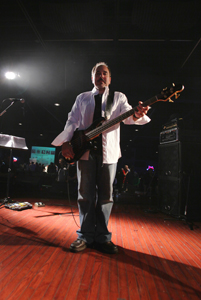
Fred: Right now the whole band is indeed local, apart from Jon Davison who lives in California. Which is a bummer for us but that’s just how it is! We’re trying to find a drummer from here that can join us full time.
Nashville is known for country music and Memphis for blues, is there something about Chattanooga that set the ground for one of the best progressive rock bands in North America?
Fred: The music scene here is dismal. It’s just a coincidence we lived here and took initiative to get our music recorded and out into the world. Before 1993 that would have been next to impossible living somewhere like Chattanooga. But we started around the time when the world-wide web became a viable marketing tool and pro-grade recording equipment became affordable.
Steve: The eastern-Tennessee region has a number of prog bands to its credit. Salem Hill, Neal Morse, Glass Hammer (of course), and once upon a time there was a band called Somnambulist who Fred and I got to produce. But it’s coincidence. The general populace is unaware that bands like GH exist here.
Did your success stimulate the progressive rock scene in Chattanooga?
Steve: We’re better known in Chattanooga as producers. And as such I think we’ve had a positive impact on a number of artists. But very few Glass Hammer fans hail from our home town. There really isn’t a prog-rock scene here, and we certainly haven’t put any energy into creating one.
Your band follows the great progressive rock tradition of the 1970s, with epic songs and fantasy artwork. How important are the other art components, aside from music?
Fred: I think it’s very important. We, as people, really contribute nothing as far as any kind of image. It has to come from art. That’s the visual side of what we do. We love having good art as a compliment to the music.
The keyboards you use like mellotron and organ are some of the most cherished by progressive music fans. What keyboards [models] do you use? Where and how did you get them?
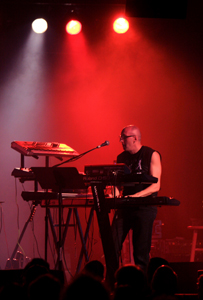
Steve: I’ve had a Yamaha CS-5 synth since 1980. I still pull it out and use on Glass Hammer albums now and then. It’s getting a little noisy, but it has a charm I can’t find in other keyboards or soft-synths.
If you could gather any musicians or musical groups to collaborate with whom would that be?
Fred: Well, at this jaded point in life I don’t know if I have a fantasy along those lines any more. Jon Anderson was at the top of the list and we got to do that. I would have to say if I had a chance to meet Thijs Van Leer and collaborate, with him on keys or flute, that would be amazing. There are hundreds of musicians out there that getting to work with would be a huge honor. But, I don’t feel particularly motivated to seek them out.
Steve: I’d love to be Todd Rundgren’s bassist for at least one project. Working with Bowie would be cool too. I’m actually happy and, I think, extremely lucky to collaborate with Fred, Jon and Alan; along with many of the former Glass Hammer members. GH is my ‘dream band’. I’m totally serious about that!
What was the first big lesson you learned about the music business?
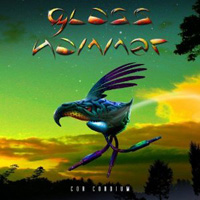
Fred: For me, once I learned to let go of the performing musician fantasy and think about becoming a producer who sits behind the board it all worked out. Now I get to do Glass Hammer and I don’t have to work at a computer store.
Do you have any tours planned?
Fred: No, but we are actively searching for some venues to get this version of the band out and playing!
Are you working on new projects?
Fred: We are putting a song together for a new Colossus project with an H. P. Lovecraft theme and it’s going to be fantastic. And we’re thinking towards a new album, and our initial idea is to make it VERY huge.
Steve: That’s it. I’m hoping we’ll start writing soon. We’re talking a lot about what the new album should be or could be. Now it’s time to get to work!
